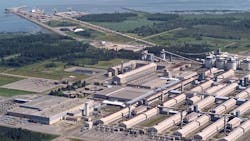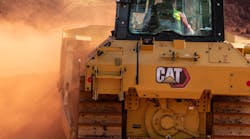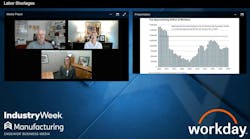Alcoa Hits Pause on Some Canadian Capex Over Tariffs
Alcoa Corp. executives have hit the pause button on some investment projects in Canada until they get more clarity on tariffs, the aluminum giant’s CFO said recently.
Speaking at the Jefferies Industrials Conference early this month, Molly Beerman said Pittsburgh-based Alcoa has seen the profitability of its Canadian products shrink because of the Trump administration’s tariffs and added that the impact on its operations north of the border has been roughly offset by higher prices for goods made in the United States.
“So neutral at this pricing level,” Beerman told Jefferies analyst Chris LaFemina. “Of course, this is not accomplishing what the U.S. administration wants, which is to enrich producers and incentivize us to invest in the U.S. smelting production.”
Alcoa’s Canadian production capacity totals 960,000 metric tons, which is more than three times what the company can crank out at its U.S plants. In a typical year, about 70% of Canadian production is shipped to U.S. customers—much of it via annual contracts Beerman said the company is honoring—but that number is “probably down to about 63% at this moment” as executives have diverted volumes to local customers.
The short version of the story is clear: Lower profitability means fewer capex.
“Our Canadian smelters have traditionally generated substantial amounts of cash,” Beerman said. “Now they are paying high tariffs and so we’re holding additional investment there until we see where the tariffs move.”
Beerman didn’t go into details about which projects have been postponed or how much of Alcoa’s capex budget—which totals $675 million this year, most of allocated to “sustaining” work rather than growth-oriented investments—is being held back. A company spokesperson didn’t respond to IndustryWeek’s request for details prior to publication.
Beerman said Alcoa teams have focused their recent lobbying efforts on securing a lower price for metal moving from Canada to the United States and have been active both in Washington, D.C., and Ottawa. She said she’s “encouraged” by some recent meetings with officials in both capitals.
But, she added, Alcoa employees also are running the numbers to see if it makes financial sense to see if it would be more profitable—even with far higher shipping costs—to ship aluminum to Europe. Doing so would bring to life the hypothetical scenario Alcoa President and CEO Bill Oplinger raised early this year. Speaking two days after President Trump took office, Oplinger outlined the somewhat farcical possibility that tariffs would so distort trading patterns that two ships loaded with aluminum would pass each other on the Atlantic Ocean—one carrying product made in Canada and headed for Europe, the other carrying metal made in the Middle East or India and bound for the United States.
Shares of Alcoa (Ticker: AA) were changing hands around $31.90 on the afternoon of Sept. 11, up about 3% on the day. They are essentially unchanged over the past six months, leaving the company with a market capitalization of about $8.3 billion.
About the Author
Geert De Lombaerde
Senior Editor
A native of Belgium, Geert De Lombaerde has been in business journalism since the mid-1990s and writes about public companies, markets and economic trends for Endeavor Business Media publications, focusing on IndustryWeek, FleetOwner, Oil & Gas Journal, T&D World and Healthcare Innovation. He also curates the twice-monthly Market Moves Strategy newsletter that showcases Endeavor stories on strategy, leadership and investment and contributes to other Market Moves newsletters.
With a degree in journalism from the University of Missouri, he began his reporting career at the Business Courier in Cincinnati in 1997, initially covering retail and the courts before shifting to banking, insurance and investing. He later was managing editor and editor of the Nashville Business Journal before being named editor of the Nashville Post in early 2008. He led a team that helped grow the Post's online traffic more than fivefold before joining Endeavor in September 2021.



